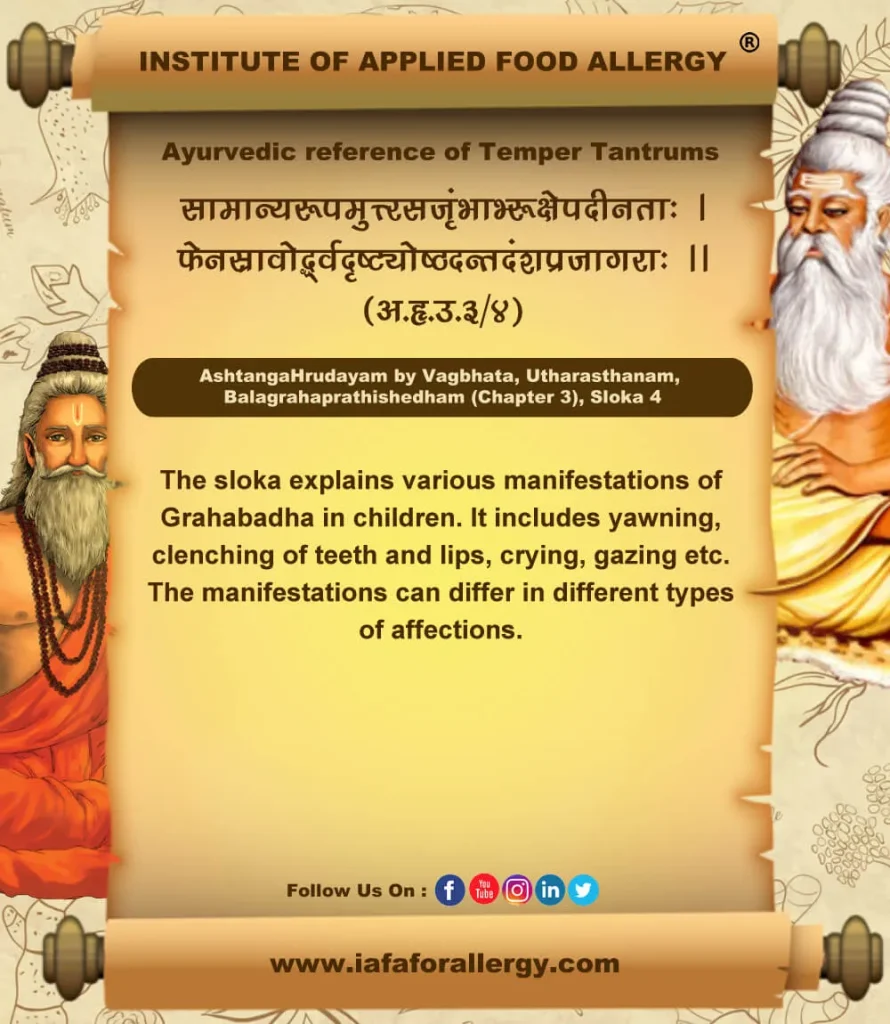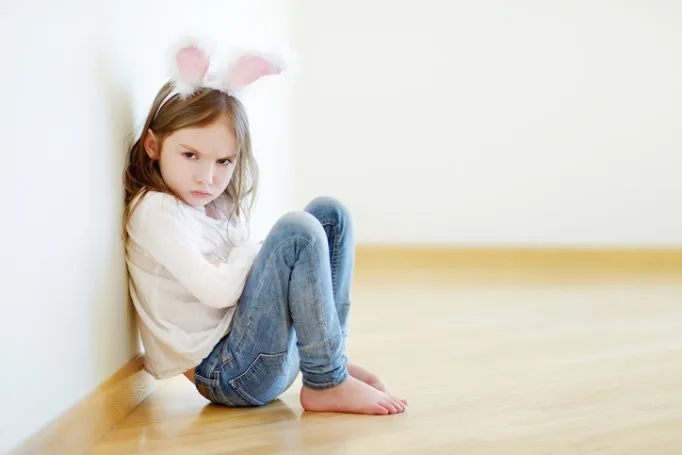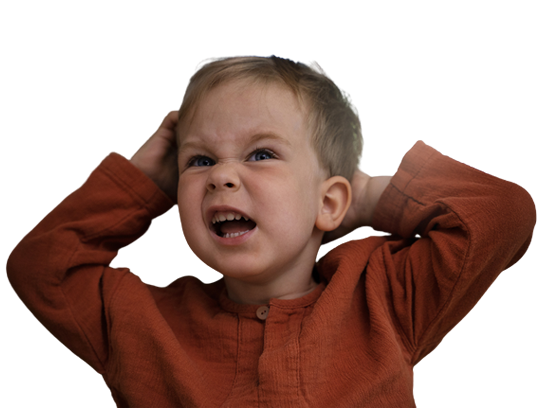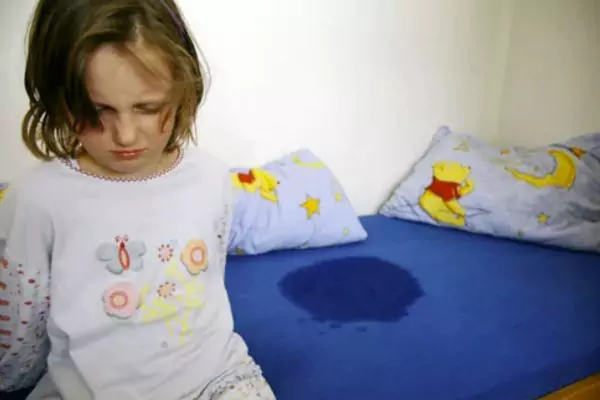On This Page
Temper Tantrums
सामान्यरूपमुत्त्रसजृंभाभ्रूक्षेपदीनता: l
फेनस्रावोर्द्ध्वदृष्ट्योष्ठदन्तदंशप्रजागरा: ll
Temper tantrums or otherwise called “acting-out” behaviors are natural and common in children. These are often unpleasant and troublesome to the child, parents and also to the society. They are commonly observed in response to unmet desires. This can get worsened when the child lacks the vocabulary to communicate his or her feelings. In Ayurveda, there is a different concept of Grahabadha that affect children. It refers to affection with certain specific constellation in children leading to corresponding changes in their behavior and manners.
Causes of Temper Tantrums
A tantrum is defined as the expression of a child’s frustration to the challenges in the situation. It can be attributed to following reasons:
- Troubles in figuring something out
- Difficulty in completing a specific task
- Child may not have the vocabulary to express his or her feelings
- Frustration can trigger anger
- Child may be thirsty, hungry or tired and cannot withstand the situation
- Attention seeking
- Feel of wanting independence
- Compulsion to do something that they don’t want to do
- Rarely hearing or vision problems, language delay, learning disability etc.
Tantrums usually begin in 12 to 18 months of age and can get worse between ages 2 to 3. They usually decrease by age 4 and rarely occur after age 4.
Manifestations of Temper Tantrums
Temper Tantrums can be manifested in different ways:
- Screaming
- Kicking
- Hitting
- Breath holding
- Actions which are out of control
- Throwing himself or herself to the floor
Response of Parents during Tantrums
The response and attitude of parents are important in controlling and reducing the intensity of tantrums. The parents should:
- Stay calm
- Avoid the child and don’t give attention to tantrums
- Don’t hit or beat
- Don’t offer anything to stop tantrums
- Distract child to some other activities
- Give snacks or food if they are hungry
- Remove dangerous or harmful things from their surroundings
- Give an appropriate time to make them under control.
Ayurvedic Reference of Temper Tantrums


“is Dr. Gupta’s IAFA is offering the best treatment for temper tantrums in children. Institute of Applied Food Allergy® is focused in providing the effective Ayurvedic treatment for all health issues in children and adults”.
IAFA comforts you at your discomforts!!
– Dr. Sahil Gupta (B.A.M.S., M.H.A.)
Ayurvedic Allergy Specialist
CEO & Founder of IAFA®
At last, Easier Temper Tantrums Management

Trusted by
More than 90,000 Patients

Convenient
at-Home Treatments

9.2 / 10
Customer Satisfaction Score
Ayurvedic Treatment for Temper Tantrums
Ayurveda offers various medicines to make the child calm and attentive. It includes various internal medicines as well as external procedures.
Internal Medicines for Temper Tantrums
- Saraswatha Ghrta
- Rasnadi Ghrta
- Brahmi Ghrta
- Panchagavya Ghrta
- Mahapaishachika Ghrta
- Saraswatharishta
- Chandanasava
- Usirasava
- Guduchyadi Kashaya
Treatment Procedures for Temper Tantrums
- Parishechana (Bathing in medicated water)
- Dhupana (Fumigation)
Single Drugs in Temper Tantrums
- Sarshapa (Brassica campestris)
- Nimba (Azadirachta indica)
- Vacha (Acorus calamus)
- Kushta (Saussurea lappa)
- Bhallataka (Semecarpus anacardium)
- Bala (Sida cordifolia)
- Brahmi (Bacopa monnieri)
- Aswagandha (Withania somnifera)
Diet in Temper Tantrums
Pathya (Do’s)
- Give food at correct time daily
- Practice a correct routine
- Praise and appreciate for the good things they have done
- Give options and chances to select their likes and dislikes
- Understand the abilities and limitations of the child and behave accordingly
- Give enough water to drink
- Practice bathing regularly
- Practice healthy physically and mentally empowering games and sports
- Give more vegetables and fruits
- Include fruit juices rather than tea or coffee
- Provide good mental support
Apathya (Don’ts)
- Offering bribe to stop tantrums
- Don’t go for late outings
- Don’t be delayed to give food
- Don’t beat or hit
- Don’t give up for tantrums
- Avoid non-vegetarian food
- Avoid junk food and restaurant food
- Lack of sleep
Frequently Asked Questions
Question: At what age temper tantrums are seen?
Answer: Temper tantrums are usually seen in children from 1 year to 4 years of age. Beyond 4 years, they usually reduce.
Question: How should temper tantrums be managed?
Answer: Parents should stay calm and patient and avoid beating children. Give them time to get calm.
Question: Is Ayurveda effective in managing temper tantrums?
Answer: Yes. Ayurveda has different treatment modalities to manage such problems in children. It includes internal as well as external medicines and therapies.
Dr. Gupta’s IAFA is offering the best treatment for temper tantrums in children. IAFA is focused in providing the effective Ayurvedic treatment for all health issues in children and adults.
IAFA comforts you at your discomforts!!
Was this Page Helpful?
So IAFA Ayurvedic Management for Temper Tantrums to Uplift Your Child’s Growth is Just 3 Steps Away!

01. Connect With Us
Book an appointment to share queries of your child health.

02. Consult With Us
Consult with Ayurvedic Pediatrician of IAFA®.

03. Root Cause Treatment
Get an accurate diagnosis and treatment for your child.
Temper Tantrums – Case Studies
Real Case Studies of Successfully Treated Patients from All Around the World by IAFA Ayurveda®

9 Year Old Female Patient Recovered from Chronic Allergic Bronchitis – A Case Study
This case study presents a 9-year-old female patient who has successfully recovered…

12-Year-Old Child Recovered from Sun Allergy and Polymorphous Light Eruption (PMLE) – A Case Study
This is a case study of a 12-year-old child who has successfully…

40-Year-Old Female Patient Recovered from Dyshidrotic Eczema and Onychomycosis – A Case Study
This case study highlights the successful recovery of a 40-year-old female patient…

40-Year-Old Female Patient Recovered from Urticaria and Angioedema – A Case Study
This case study focuses on a 40-year-old female patient who has successfully…
Read More Articles

Bed Wetting (Shayyamutra)
Bedwetting is an embarrassing habit in some children where they are unable…

Baby Care (Balopacharaneeyam)
It is a comprehensive guide for Baby Care as per Ayurveda. IAFA provides…

Attention Deficit Hyperactivity Disorder – ADHD (Vatika Unmada)
Contact IAFA Ayurveda® to get safe and natural remedies for the treatment…













